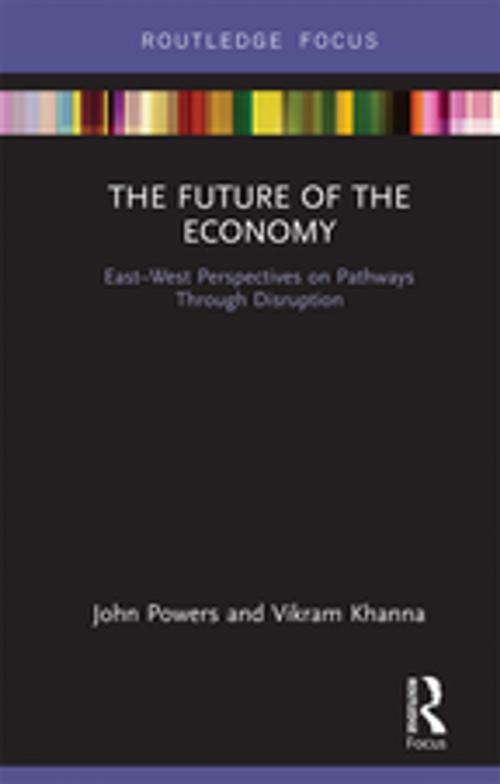The Future of the Economy
East-West Perspectives on Pathways Through Disruption
Nonfiction, Social & Cultural Studies, Social Science, Cultural Studies, Ethnic Studies| Author: | John Powers, Vikram Khanna | ISBN: | 9781351023566 |
| Publisher: | Taylor and Francis | Publication: | September 20, 2018 |
| Imprint: | Routledge | Language: | English |
| Author: | John Powers, Vikram Khanna |
| ISBN: | 9781351023566 |
| Publisher: | Taylor and Francis |
| Publication: | September 20, 2018 |
| Imprint: | Routledge |
| Language: | English |
As the pace of economic change seems to only quicken, including rapid technological advance, today’s advanced economies face uncertainty from a number of directions, most of which have the potential to change established modes of thinking and the institutional arrangements that underpin basic economic organization. Labor-saving technological advances are accompanied by risks to jobs due to automation. Work is being made more insecure for a wide variety of workers and skill levels because of shifting capital–labor relationships. Regulatory systems are scrambling to adapt to new technologies in infrastructure planning or to the classification of workers under rapidly proliferating "alternative work arrangements." Even the ties that bind groups of countries together in often long-standing bilateral and multilateral trade relationships are increasingly under strain with the rise of populist economic nationalism in some of the world’s largest economies. Crucial changes are taking place that risk eroding structures of opportunity, as well as public confidence in the institutions charged with economic policy making in many countries. The expert views contained in this book will be valuable to the reader studying or working on the many overlapping issues of economy, technology, and society and thus looking for insights into some of the most pertinent topics in today’s advanced economies.
Taking a multidimensional view, this book synthesizes the main issues and dilemmas facing the economy of the future, seeks to frame the trade-offs in policy terms, while also advancing the discussion towards recommendations and solutions. It focuses on the intersection of work, technology, society, infrastructure, and the economic role of government. In this way, the book is centered on some of the most tangible areas of economic structure that reproduce the gains of growth, but it also addresses matters related to the distribution effects and measures that can produce more inclusive and productive outcomes, including the fundamental role of policy and regulation.
As the pace of economic change seems to only quicken, including rapid technological advance, today’s advanced economies face uncertainty from a number of directions, most of which have the potential to change established modes of thinking and the institutional arrangements that underpin basic economic organization. Labor-saving technological advances are accompanied by risks to jobs due to automation. Work is being made more insecure for a wide variety of workers and skill levels because of shifting capital–labor relationships. Regulatory systems are scrambling to adapt to new technologies in infrastructure planning or to the classification of workers under rapidly proliferating "alternative work arrangements." Even the ties that bind groups of countries together in often long-standing bilateral and multilateral trade relationships are increasingly under strain with the rise of populist economic nationalism in some of the world’s largest economies. Crucial changes are taking place that risk eroding structures of opportunity, as well as public confidence in the institutions charged with economic policy making in many countries. The expert views contained in this book will be valuable to the reader studying or working on the many overlapping issues of economy, technology, and society and thus looking for insights into some of the most pertinent topics in today’s advanced economies.
Taking a multidimensional view, this book synthesizes the main issues and dilemmas facing the economy of the future, seeks to frame the trade-offs in policy terms, while also advancing the discussion towards recommendations and solutions. It focuses on the intersection of work, technology, society, infrastructure, and the economic role of government. In this way, the book is centered on some of the most tangible areas of economic structure that reproduce the gains of growth, but it also addresses matters related to the distribution effects and measures that can produce more inclusive and productive outcomes, including the fundamental role of policy and regulation.















